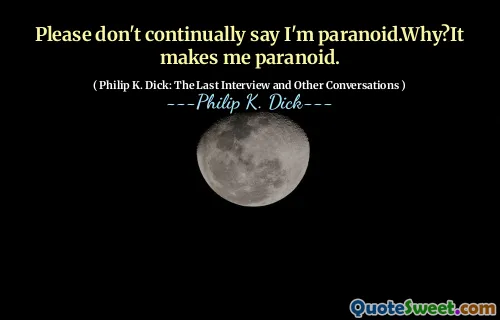
... and Lynn is dead inside, like a corpse. She Instagrams methodically, clinically, as if she's gathering evidence for defense, like her entire life is dedicated to proving that she has a life.
[This quote offers a poignant critique of social media's impact on authentic human experience. It suggests that Lynn has become emotionally detached or numb, symbolized by the phrase 'dead inside,' which is often used to describe a sense of inner emptiness and disconnect from genuine feelings. Her behavior—meticulously and clinically documenting her life on Instagram—implies that she is more focused on creating a curated, presentable version of herself rather than engaging with the real world on a meaningful level. This act of gathering evidence for defense hints at a defensive stance, perhaps due to vulnerability or insecurity, and underscores how social media can serve as a shield or a form of validation rather than a platform for true self-expression. The idea that her entire existence is dedicated to proving she has a life speaks to the performative nature of online personas, where the worth of a person is often measured by their digital footprint rather than their internal reality. This phenomenon raises questions about authenticity and the toll it takes on individual well-being, as the pursuit ofvalidation can sometimes lead to a hollow, superficial life that prioritizes appearances over genuine experience. The quote encapsulates a societal concern about the loss of genuine human connection and the ways in which digital lives can become performances disconnected from real feelings. It provokes reflection on how societal values around success and happiness are often mediated through digital platforms, risking the suppression of authentic selfhood in favor of curated perfection, driven by external validation rather than internal fulfillment. In essence, it is a commentary on modern alienation and the emotional peril of living a life focused on impression management rather than genuine connection.]

